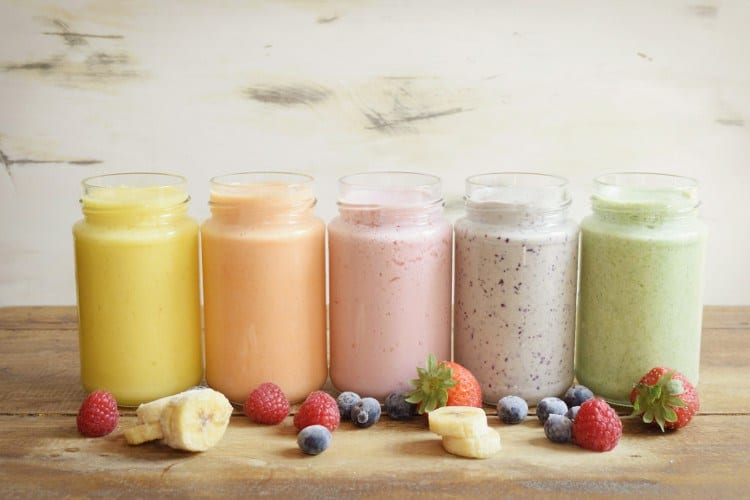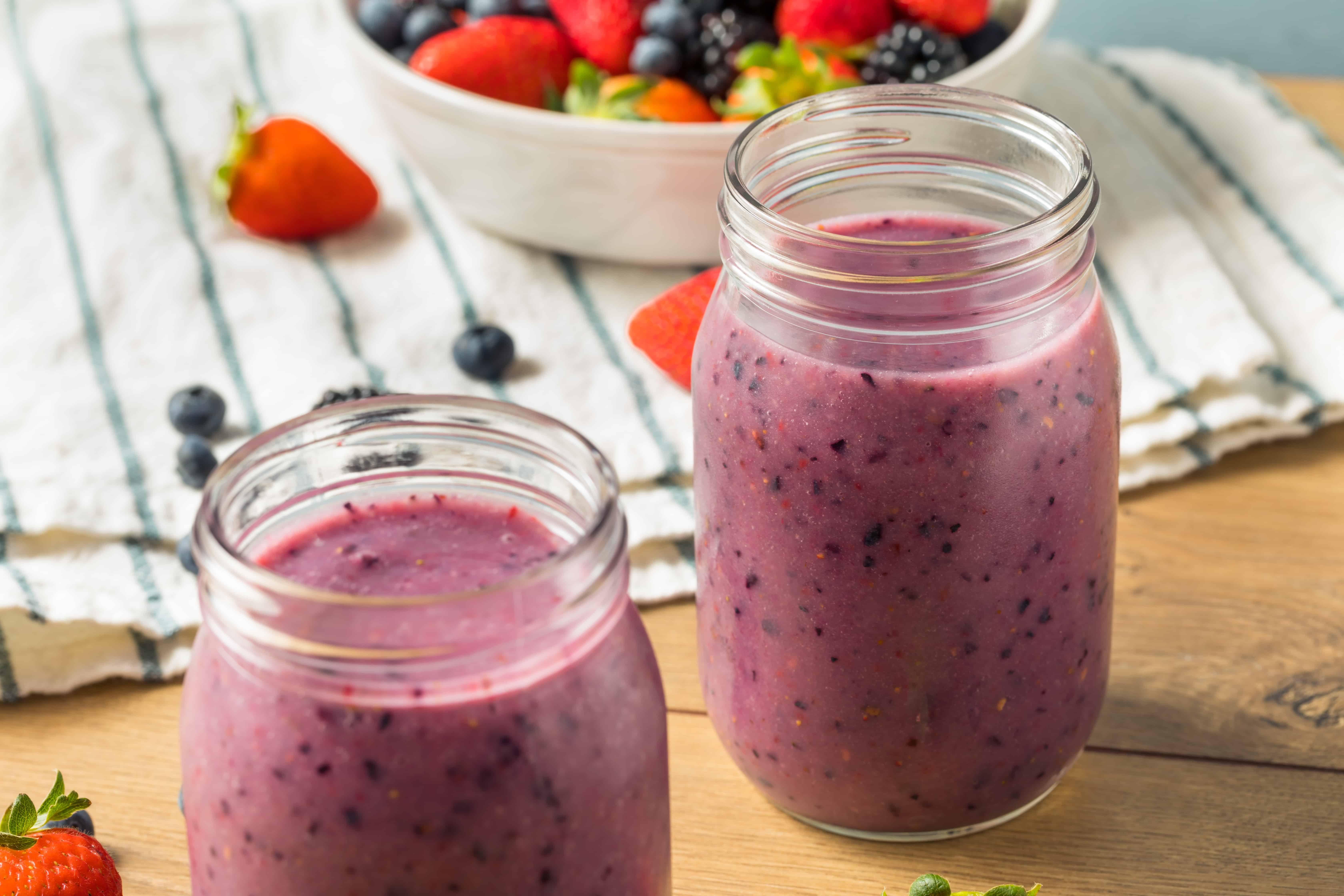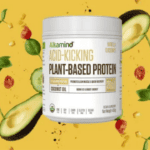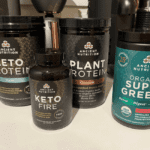Whey protein has been king in the protein supplement industry for decades. Just look at the shelves at any health food store. There are hundreds of options! However, over recent years other protein types have emerged in the market due to new nutritional research and dietary needs.
Plant-based protein supplements have grown exponentially in the last five years due to the growth of veganism and more environmentally friendly diets. No matter what your taste preferences or beliefs, plant-based protein supplements have many benefits that are worth considering when purchasing a new container of protein powder.
Topic Contents
1. Easily Digestible
Most people can digest lactose, the sugar found in milk. However, many people are lactose intolerant or just sensitive to sugar. Most whey protein products claim they have no lactose, but many products contain at least some trace amounts of lactose due to the manufacturing process of whey protein supplements.
Lactose intolerance or sensitivity can lead to bloating, a distended stomach, and gassiness that is not fun. If you’re sensitive to lactose then it’s best to use a plant-based protein supplement as your body can easily digest it.
2. Little or No Artificial Sweeteners
If you look at the ingredients list of any whey protein powder on the shelf today you’ll often find an extensive list of ingredients including artificial sweeteners. Plain whey protein just doesn’t taste good so many manufacturers will add sweeteners like acesulfame potassium and sucralose among others.
If you can’t handle the plain taste of protein supplements, look for products that contain Stevia, a plant-based sugar substitute. Many plant-based protein flavored supplements contain some Stevia for taste.
3. More Environmentally Friendly
Plant-based protein supplements are more environmentally friendly. Animal agriculture is responsible for 18% of all greenhouse gas emissions, which is more than all transportation exhaustion combined. Switching to a plant-based diet can cut your carbon footprint by at least 50%.
In addition to high greenhouse gas emissions, almost half of the US is devoted to animal agriculture. One and a half acres of land can either produce 375 pounds of meat or 37,000 pounds of plant produce. Not to mention the waste.
A dairy farm containing 2,500 cows produces the same amount of waste as a city of 41,000 people. Just switching to a plant-based protein supplement could help reduce waste and your carbon footprint.
4. Less Flatulence
The lactose in whey protein often leads to flatulence, diarrhea, and feeling bloated in many people who consume whey protein supplements regularly. Additionally, about 65% of the human population has a reduced ability to digest lactose. Depending on the type of whey protein supplement you use, many brands contain at least a small percentage of lactose. Skip the whey in favor of plant-based!
5. No Added Hormones
Whey protein supplements are derived from dairy milk. Unfortunately, in today’s dairy industry, farmers often inject their cows with synthetic bST, also known as rbGH, to increase their milk and meat production.
Thus whey protein can contain trace amounts of bST. Of course, there are many organic whey protein supplement products on the market that use only organic and hormone-free milk, but to guarantee that your protein supplement does not contain any trace amount of growth hormones or antibiotics then plant-based proteins are your best buy.
6. Reduce Toxicity
It’s not uncommon to find heavy metals like arsenic, cadmium, lead, and mercury in protein supplements. A recent Consumer Report found that several brands of major whey protein supplements contained a surprisingly high amount of arsenic and cadmium. Both toxins are considered to be known carcinogens and linked to various cancers and health-related problems.
These trace amounts of heavy metals are commonly found in animal-based protein supplements from animal feed. People often say “you are what you eat.” Cows are often fed GMO corn grown with fertilizer containing metals, which in return is deposited in their milk and ultimately your protein powder.
7. Conserve water
Over half of the water consumed in the United States is used for animal agriculture. The meat and dairy industry alone uses a third of the entire planet’s freshwater. It takes on average 1,000 gallons of water to produce just one gallon of milk.
With the water crisis at an all-time high in recent years, switching to a plant-based protein supplement could help save water around the globe. Just think about how much water is used to create a container of whey protein!
8. Allergy Free
Not everyone can consume animal-based protein supplements like whey and casein due to food allergies. In some people, casein and whey can cause an excessive inflammatory immune response. This response leads to mucous production that could potentially block airways and cold-like symptoms. In the worst case, it could lead to vomiting, diarrhea, and loss of consciousness.
Plant-based protein supplements are a great alternative for those who are allergic to whey or dairy proteins. However, plant-based protein sources might also be common allergens as well so make sure you always read the labels carefully. Common plant-based protein supplements that most people can consume without the worry of an allergic reaction include hemp, chia, and pea.
9. Nutrient Rich
It’s a common myth that plant-based proteins are not as complete as animal protein, but just not true. Plant proteins build just as much lean muscle as whey protein. For example, rice protein contains all the essential amino acids that you would find in whey protein, but just at a lower level. If you consume a high enough dose, you’ll digest the optimal levels of all the key amino acids including leucine.
Hemp is another common plant-based protein supplement. It is a near-complete plant-based protein that contains omega-6 essential fatty acids and is high in fiber. Most plant-based protein supplements will contain a mixture of several plant-based proteins for optimal nutritional value.
10. Better Neutral Taste
For most people taste is the number one factor in choosing a protein supplement. No one wants to eat or drink something that just tastes bad. Plant-based protein supplements are often some of the better tasting protein powder supplements are the market because they don’t generally use artificial sweeteners and keep ingredients to a minimal.
Often the powders come flavorless for more versatility. You can add them to smoothies, puddings, oatmeal, or even bake with them without even the slightest taste.
Next time you head to the health food store in search of a new protein supplement, look for the shelf containing plant-based protein supplements. Not only are they super healthy and environmentally friendly, they taste good and are generally budget-friendly. There are more options than just whey. It’s time for
a change!
Of course, we’ve reviewed some amazing plant-based protein supplements here too. Check out our review on Garden of Life Vegan protein, or our Naked Pea protein review. Also, we know you are looking for the best proteins on the market, which is why we recommend reading the full list with the best proteins for you!
Alt Protein Team is a team of professionals and enthusiasts committed to bringing you the most up-to-date information on alternative protein, health and wellness, workouts, and all things health-related. We’ve reviewed a lot of products and services so you don’t have to guess when you spend your hard-earned money on them. Whether you want to shed some pounds, build lean muscle or bulk, we can help you figure out what you need to do and what you need to have to achieve your goals.








![Protein Powder Recall Watchlist - Whey Protein Recalls [Updated] protein recalls](https://altprotein.com/wp-content/uploads/2018/10/protein-recalls-150x150.jpg)


